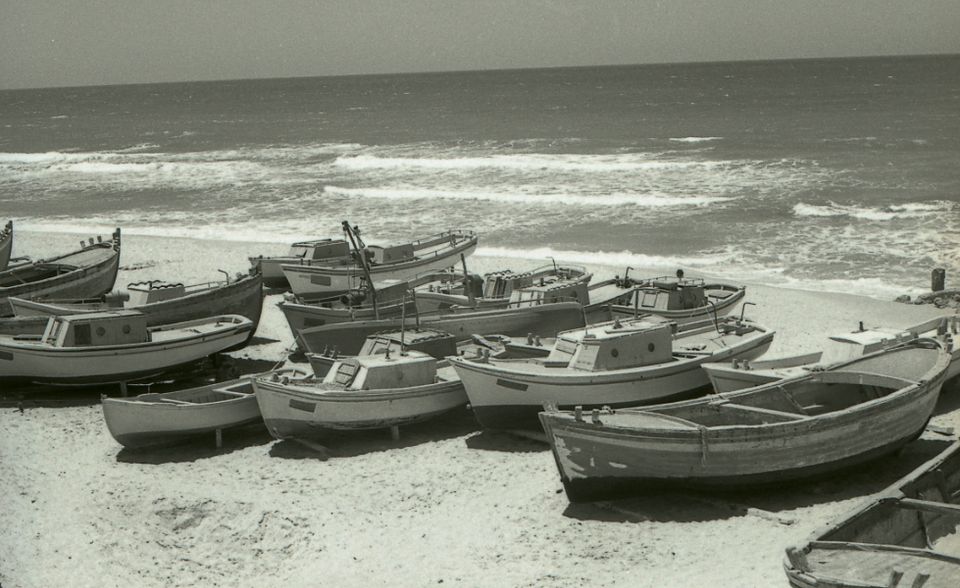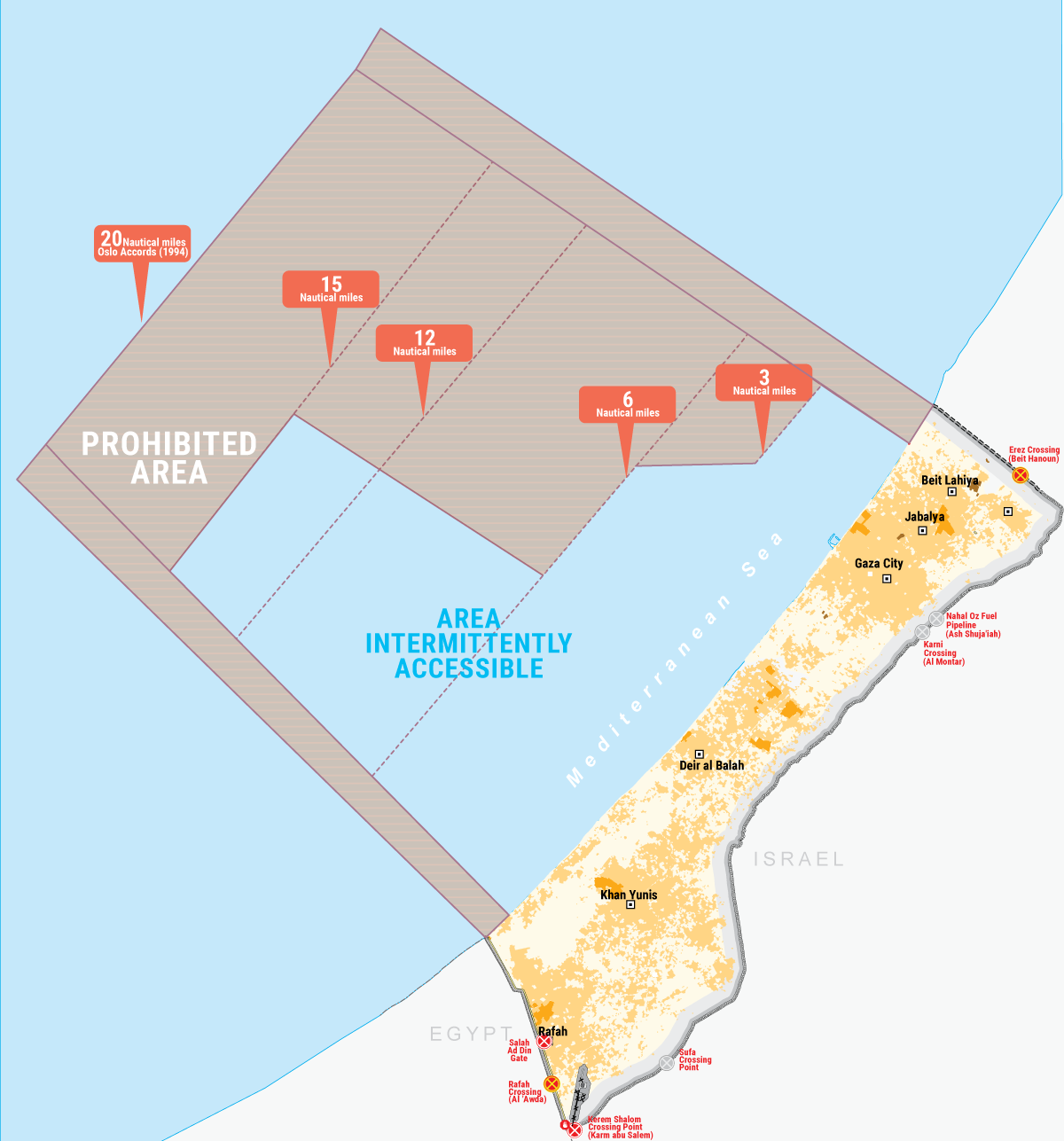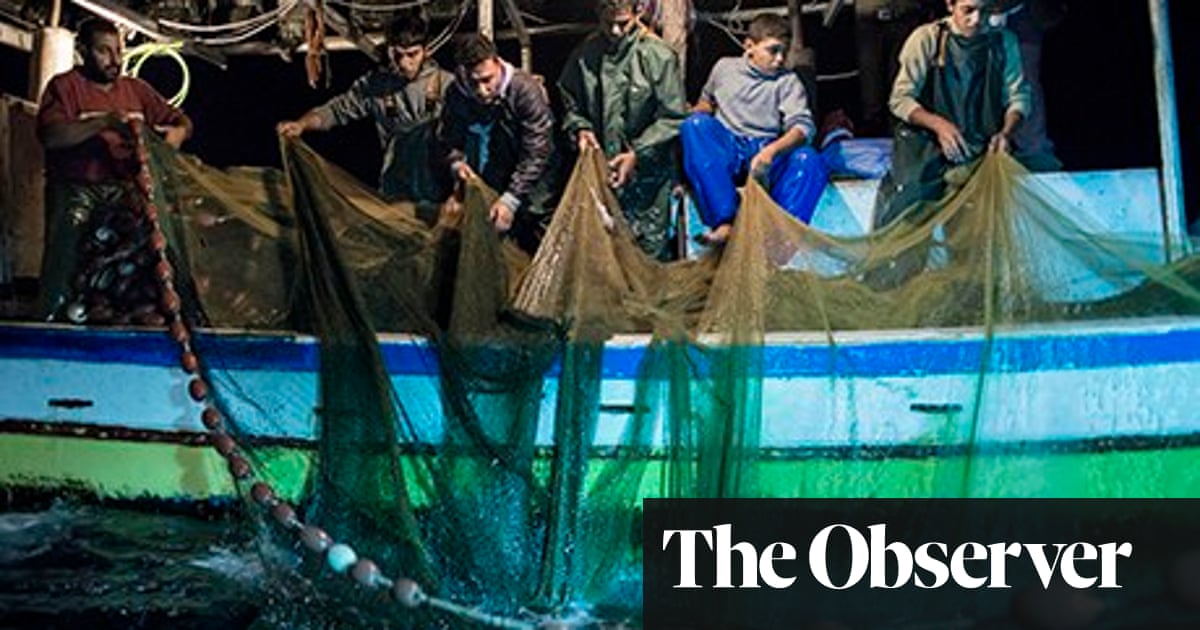#6 Israel's relentless suppression of Gaza's fishers

Hello, dear readers. Apologies for the long hiatus. Today's post is dedicated to Gaza, and a recognition of the absolute misery her fishers have been subjected to at the hands of Israel.
On 7th March 2015, Tawfiq Abu Riyala, a traditional, small-scale fisherman based in Al-Shati, a refugee camp in northern Gaza, was shot dead on his boat by the Israeli Occupying Forces. His brother, Abu Ra’ed, also a fisherman, recalls that on the fateful day, he told Tawfiq to not venture out, as the Israeli military had shot at their boat they had taken previously. “He listens to me everytime, except for this time when he didn’t," he spoke in a 2015 documentary titled 'Tawfiq's Reef'.
Tawfiq would barely make $15 in a week. Each time he ventured out and the military would attack the boat, it would be in need of repairs. Each repair would set him back by $500. Over time, he had collected a debt of $10,000.
And so, in an attempt to bring fish home, he used to collect steel from old refigerators and cars, build an artificial reef, and hope to collect some fish for his family. He had four children. His wife called him "“the soul of the house, my whole life."
Gaza is an enclave of the State of Palestine, on the east of the Mediterranean Sea. It has a 41 kilometer long coastline, and is bordered by Egypt on the southwest and Israel on the east and north. The enclave is currently being decimated under an on-going genocide carried out by the Israeli Occupation Forces. Out of a population of 2.7 million people, over 7000 people have been killed [the toll is rising], and over a million people have been displaced. Vital infrastructure such as hospitals, schools, residential buildings, places of worship have been destroyed. Israel is using extremely powerful and high precision missiles in a targeted manner to destroy lives of civilians.
Fishers of Gaza have been living under a high tension atmosphere since 2007, when Israel and Egypt declared an indefinite economic blockade on the enclave. The blockade forbade any kind of movement of goods and people, and severely restricted maritime access. The economy began to falter, and so did a number of industries. Fishing was one among them. From a thriving 10,000 in 1997, the number of fishers in Gaza declined to less than 4000 in a span of 20 years. The Oslo Accords of 1993, which were a pair of agreements between Israel and Palestine, a start of a 'peace process' aimed at fulfilling the "right of the Palestinian people to self-determination", allowed Gaza fishers access to 20 nautical miles of fishing [37.7km]. But in practice, they could never really access their own waters for fishing.

Israel's military, at their own whim, which they deem to be security reasons, have reduced the fishing zone for Gaza fishers to 6 nautical miles [11.2 KM], and would keep changing between 3 [5.5KM] and 6 [11.2KM] nautical miles at their own whim. It makes its own arbitrary rules about the fishing zone, and exacts savage punishments for those who break them. This has been in direct violation of the United Nations Convention on the Law of the Sea [UNCLOS], an international agreement that establishes a legal framework for all marine and maritime activities, and the rules set by the Oslo Accords.
Imagine going out to an open sea that is a limited, contained, high pressure zone. You take your small, motorised boat, with an outboard engine of about 20HP in the hope to catch enough sardines to sell and to feed your family. You take your boat a few meters barely off the coast and you suddenly find yourself surrounded by large military gunboats. These gunboats circle your little boats continuously, and rapidly, creating waves that make you dizzy. Then they proceed to cannon water at you. Often, the water is sewage. You are wet, dizzy and frightened. And sometimes, you also get shot at.
If you are lucky enough to not die, you are more than likely to get injured.
Intesar a-Sai'di, a homemaker, based in Al-Shati refugee camp has had her family earning their livelihood from the fishing sector for generations. When she got married in 1984, fishing was not a risky profession. Her husband used to take the rowboat far, in regions where more varieties of pelagic fish can be found, and they used to earn nearly $600 a week. Things got extremely difficult after the blockade in 2007. Today, her family barely managed to earn $150 a month. Here, in her own words, she describes to a researcher from the The Israeli Information Center for Human Rights in Occupied Territories the injuries endured by her son, Al-Khader whilst on a fishing trip:
On 20 February 2019, he was out fishing. That night, we heard that the military had chased some rowboats and taken one to the port of Ashdod. My son a-Sayed told me that Khader had been arrested, but I had a feeling that he’d been hurt. I was in the dark for four days. The other fishermen were released, but not Khader. Finally, I learned that he'd been hit in the right eye by a rubber bullet and lost his sight in both eyes, and was hospitalized in Israel. When they brought him to a-Shifaa Hospital in Gaza, I saw him for the first time and broke down crying.
Since then my life's been a tragedy. My heart is full of sorrow for Khader, who is a prisoner in his own home. He's unemployed and can't support his family. His financial situation is truly tragic. He doesn't receive any benefits or support, other than small donations from generous people. His medication costs about 150 (~45 USD) shekels a month.
Khader's in a bad emotional state. He doesn't like to go out in his condition, stays at home all day and doesn't sleep at night. He's very tense. It would have been better if the bullet had hit another part of his body. It's very hard to lose your eyesight, especially for a guy who's only 32. Of everyone in the family, I'm the one most affected by Khader's situation. I'm the one who cares for his needs and provides for his children. All fishing gave him was trouble and heartache. The riches of the sea stayed in the sea, and I was left with pain over my son who lost his eyesight at sea.
Gaza fishers have experienced all kinds of humiliation at sea. Often, when they are 'caught', they are forced to strip naked and swim towards the military boats. Once on deck, they are handcuffed and blindfolded and 'interrogated' for hours. They are then either taken to the prison or left at Ashdod, a border port where they have to pay their own fee to cross over to their own home-state. Their boats are often either confiscated, or returned, after being rendered useless.
The Israeli authorities restrict and prohibit the entry of materials and equipment that it deems to be “dual-use,”4 including spare parts for boat engines and fiberglass. This policy makes it almost impossible for fishermen to repair and upgrade boats, including those damaged by the navy during confiscation of the boats and while they are being held. Engines with the capacity of 40 horsepower and naval electronic devices such as GPS systems are also banned. The Israeli authorities do not compensate fishermen for damages that occur during their seizure or while the boat is being held in Israel. As a pre-condition to the release of their boats, the owners must sign a declaration in which they forfeit their rights to compensation and release the Israeli military from responsibility for the damages.
Between 2015 and 2019, the Israeli naval forces have carried out 1,043 attacks on fishermen—1,032 of them involving the use of live fire. Five fishermen have been killed and another 105 fishermen injured, including four children, in the same period. 374 fishermen were arbitrarily arrested, including 37 children. The Israeli forces have confiscated 113 boats, plus equipment during this period.
In 2020, there were 308 incidents of gunfire shooting by the Israeli Navy on fishing boats coming from Gaza. In the same year, 10 fishermen were arrested and 12 were injured, along with confiscating four boats and sabotaging fishermen’s equipment in 12 incidents.
In the year 2022, 64 fishers were imprisoned, 23 boats were seized and 24 fishers were injured.
In the year 2023 alone, the United Nations Office for the Coordination of Humanitarian Affairs has recorded over 400 incidents when the Israeli Occupation Forces have opened fire at Palestinian boats, causing severe damage and injury.
The daily use of a trawler would cost between US $1,000 and US $1,400 and for smaller boats cost between US $200 and US $420. The average monthly income of a Gaza fisherman has been around $120, making them one of the poorest communities in Gaza.
In August 2023, about two months before Israel started bombing the region relentlessly, 200 fishers gathered together at Gaza's seaport to voice their anger at the continuing Israeli violations against them and to demand immediate international intervention. The demonstration, organised by Union of Agricultural Work Committees, partner of Freedom Flotilla Coalition, (a grassroots people-to-people solidarity movement composed of campaigns and initiatives from different parts of the world, working together to end the illegal Israeli blockade of Gaza) in the besieged enclave was a result of a round of escalation in the prior ten days saw the arrest of at least six fishers and the seizure of multiple boats, as reported by Al Jazeera. They wanted the international community to "stop the shameful silence."
Today, the port is gone. The fishers are gone. Everything has been reduced to rubble.
Tawfiq's words are still floating, and haunting:
“I climbed the mountain, asked what was wrong. The mountain said the water erodes. I asked the water, what was wrong. The water said the fish were swimming inside it. I asked the fish, what was wrong. They said fishermen tried to catch us. I asked the fisherman, what was wrong? The fisherman said the world has turned its back on me."
More readings and resources:
A first-person account of a 2013 fishing trip in Gaza by journalist Alex Renton for The Guardian

A comprehensive 2015 report on the status of fishers of Gaza, by Al-Haq, an independent human rights non-profit based in Palestine https://www.alhaq.org/cached_uploads/download/alhaq_files/publications/Deadly.Catch.Report.pdf
A 2018 report on Gaza's fisheries sector by UN OCHA
https://www.ochaopt.org/content/gaza-fisheries-fishing-catch-increases-amid-ongoing-protection-concerns#ftn3
A 2019 fact-sheet on the status of Gaza fishers by Al Mezan Center for Human Rights https://www.mezan.org/public/uploads/files/15712153571134.pdf
A 2020 report on the situation of fisher families compiled by the Israeli Center for Human Rights in Occupied Territories
https://www.btselem.org/gaza_strip/20200909_fishrmen_families_gaza_strip

